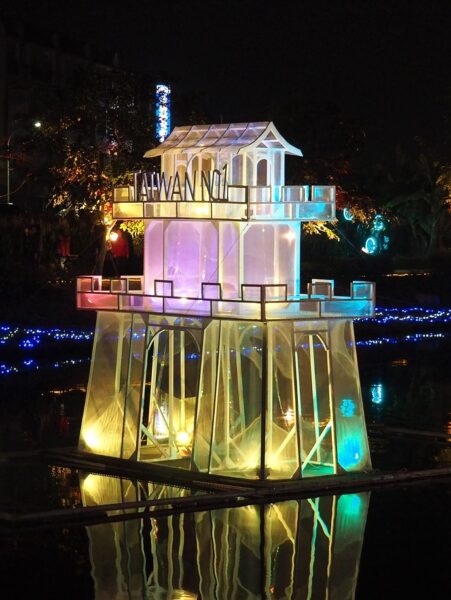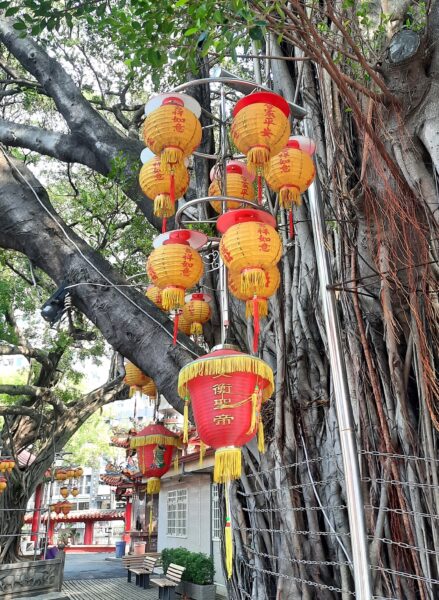For centuries, life in Taiwan has been enlivened by annual festivals and celebrations. Without any doubt, the most important of these is the Lunar New Year, also known as Chinese New Year.
The first day of the lunar year is determined by the ancient lunisolar calendar, and always falls between January 22 and February 19 on the Gregorian calendar. In Chinese, this highly complex calendar is known as Nongli (‘agricultural calendar’) because, in the days of yore, it guided farmers through the cycle of planting and harvesting that was crucial to their survival. It also plays a crucial role in religious life. By referring to the lunisolar calendar, pious members of society can know when they should mark a deity’s birthday, when they should burn incense and joss paper, and when to stick to a vegetarian diet.
That calendar underpins the Shengxiao, a 12-year cycle often compared to the astrological zodiac. Just as some in the West believe that one’s star sign influences one’s character, Han people may say that those born in certain years tend to have similar personalities. February 10, 2024 will be the first day of the Year of the Dragon, a creature traditionally associated with power, nobility, and success. The other animals that make up the Shengxiao are, in order: snake, horse, goat, monkey, rooster, dog, pig, rat, ox, tiger, and rabbit.
Starting from a few days before Lunar New Year, schools close for about three weeks. With the exception of hotels, restaurants, and larger shops, business grinds to a halt for several days. During this holiday season, local people feast, visit relatives, clean their houses, offer prayers and incense in temples, and present cash-filled red envelopes to the younger and older generations.
The Lunar New Year period certainly isn’t the best time of year to explore Taiwan. For the vast majority of Taiwanese — including chefs, museum staff, and Life of Taiwan’s hardworking expert tour guides — it’s a valuable time to rest and catch up with friends and family. Those who’ve been working far from their hometowns head back for the new year, so the first day of the holiday features a huge amount of southbound traffic. Not everyone follows tradition, however, and hordes of people head to the east coast and to hot springs resorts. As a result, getting discounted accommodation is just about impossible to find.
A week or more after the Lunar New Year, however, is an excellent time to enjoy a private tour of Taiwan. A highlight at this time of year is the Lantern Festival, which culminates on the 15th day of the first lunar month (the first full moon of the new year). Known as Yuanxiao Jie to Mandarin speakers, the festival has grown and evolved in recent decades. Previously it was celebrated mainly in temples by hanging countless paper-and-bamboo lanterns illuminated by candles or oil lamps.

The lanterns nowadays are marvels of technology. Instead of the barrel-shaped, flickering-wick lanterns of yore, Taiwan Lantern Festival now showcases dazzling LED setups which can be programmed to change color and engage in other forms of visual trickery. What’s more, these lanterns may be of almost any shape and as big as a house. Each year there’s a theme: If you attend the 2024 Lantern Festival, expect to see more than a few dragon-shaped lanterns.
We won’t know until they’re unveiled just before the festival begins, but it’s very possible that the upcoming Lantern Festival will also feature lanterns inspired the long history of Tainan, Taiwan’s former capital and a city that features in almost every Life of Taiwan private tour of Taiwan. Tainan has been selected to host the festival’s headline events, because 2024 will mark 400 years since a flotilla of Dutch sailors, soldiers, and merchants arrived and set up a base in what’s now called Tainan — the moment seen by historians as when the hitherto little-known island of Taiwan became connected to the wider world. Anping, the antiquity-crammed neighbourhood where the Dutch built their main fort, will be one of the festival’s two key venues. The plaza at Tainan’s high-speed railway station will be the other.
Contact us today to begin planning an unforgettable tour of Taiwan. We’ll design an itinerary that fully aligns with your interests, pacing, culinary preferences, and accommodation choices. Celebrate Taiwan’s awesome festivals and explore the island’s rich heritage with us.

